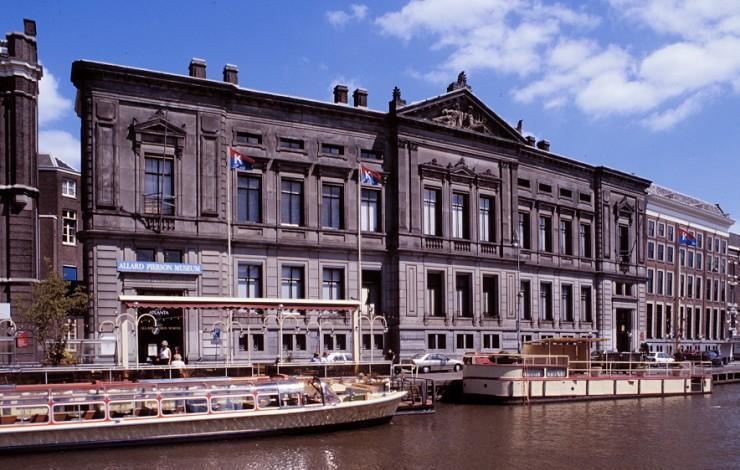17th NETWORKS Day
On Monday 22 January 2024 the 17th NETWORKS Day will take place from 9.30 - 17.30 in the Allard Pierson museum in Amsterdam.
The programme is as follows:
| 9:30 – 9:45 | Welcome and coffee |
| 9:45 – 10:00 | Opening session with a.o. Networkpages |
| 10:00 – 10:30 |
Introductory talk Simone Baldassari (new postdoc UL) |
| 10:30 –11:00 |
Introductory talk Vinay Kumar (new postdoc TU/e) |
| 11:00 – 11:30 | break |
| 11:30 - 12:30 | Presentation Carla Groenland (TUD) |
| 12:30 - 13:30 | Lunch |
| 13:30 - 14:00 | Introductory talk Soeren Terziadis (new postdoc TU/e) |
| 14:00 - 15:00 |
Presentation Johann Hurink (University of Twente) |
| 15:00 - 15:30 | Break |
| 15:30 - 16:30 | Presentation Rob van der Mei (CWI & VU) |
| 16:30 - | Drinks in De Jaren |
Abstracts
Carla Groenland (Delft University of Technology)
Tight bounds for reconstructing graphs from distance queries
Suppose you are given the vertex set of a graph and you want to discover the edge set. An oracle can tell you, given two vertices, what the distance is between these vertices in the graph. (For example, in a computer network, this would represent the minimum number of communication links needed to send a message from one computer to another.) Based on the answer, you may select the next query. The (labelled) graph is reconstructed when there is a single edge set compatible with the answers.
How many queries are needed, in the worst case? The question becomes interesting for bounded degree graphs. We provide tight bounds for various classes of graphs, improving both the lower and upper bound, in both the randomized and deterministic setting.
This is based on joint work with Paul Bastide
Johann Hurink (University of Twente)
From Top-Down to Bottom-Up: Decentralized Energy Management
The world of energy is changing rapidly and will continue to do so in the future. The conventional system of electricity being produced in bulk by large facilities connected to the transmission grid is changing to system where electricity is produced in a more distributed matter in the distribution grid in smaller amounts, closer to where it is consumed and based on non-controllable sources. This results in the power flow changing from being unidirectional from power plants to consumers to being bidirectional, with a flow ‘upstream’ during periods of high RES feed-in in certain areas. On the other hand, we see an ever increasing use of electrical appliances replacing traditional systems running on fossil fuels (e.g. electric heating systems and electric cars). These appliances are connected to a large extend to the distribution system.
This electrification of society together with the change to distributed generation (DG) poses major challenges in the operation of the electricity grid. Where in the past the main challenge was in finding a global matching of supply and demand of electricity at all times (leading to the well-known unit commitment problem) and in guaranteeing the proper operation of the gird on transmission level (leading to study power flow problems), the ongoing energy transition to a larger extend takes also place in the distribution grid. To tackle the resulting challenges the energy systems have to be ‘smarten’ on all levels of the grid, whereby now the local levels of the grid also have to play an important role. These upcoming and already ongoing changes, especially at the grid-edge, asks for a reorganization of the control of our energy systems thereby changing it from a top-down organized system to a more bottom-up structured dynamic system.
In this talk an overview of corresponding challenges and possible solution directions in the area of decentralized energy management and smart grids is given ranging from conceptual aspects up to concrete field tests.
Rob van der Mei (CWI & Free University Amsterdam)
Saving Lives with Emergency Mathematics
In this talk, I will discuss a number of success stories in which applied mathematics and data science have been brought into the operational practice of emergency planning, ultimately saving lives. Examples include ambulance planning, firefighter planning, incident management on railways and the reduction of waiting lists in the acute elderly care and mental healthcare. I will also discuss some lessons learned, including and do’s and don’ts about how to bring smart planning algorithms into operational practice.

